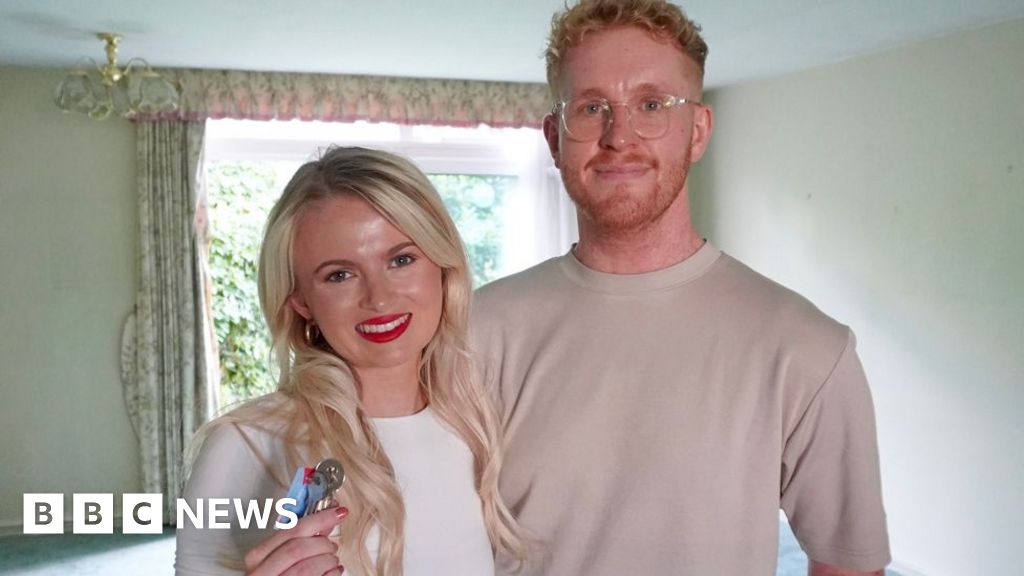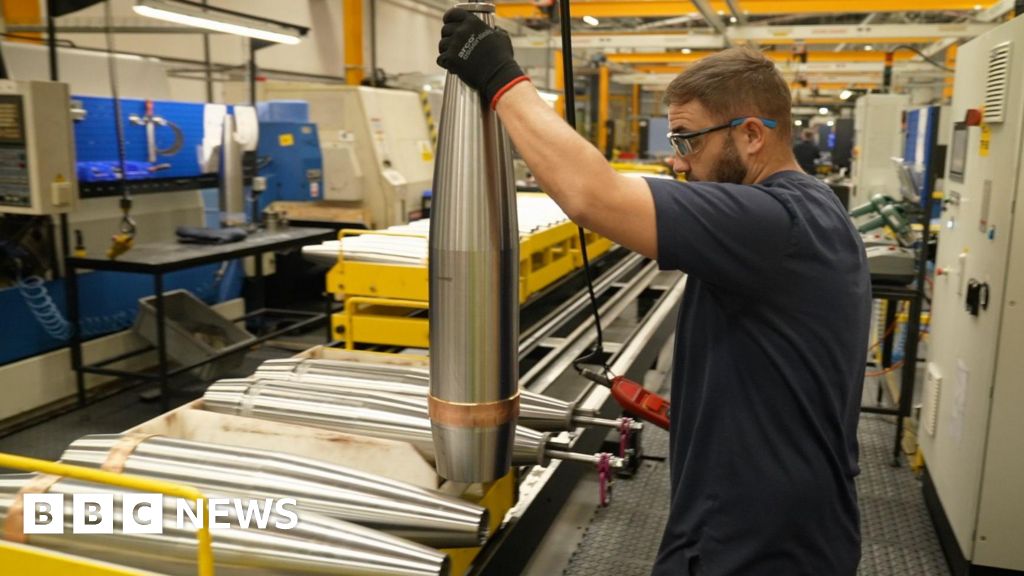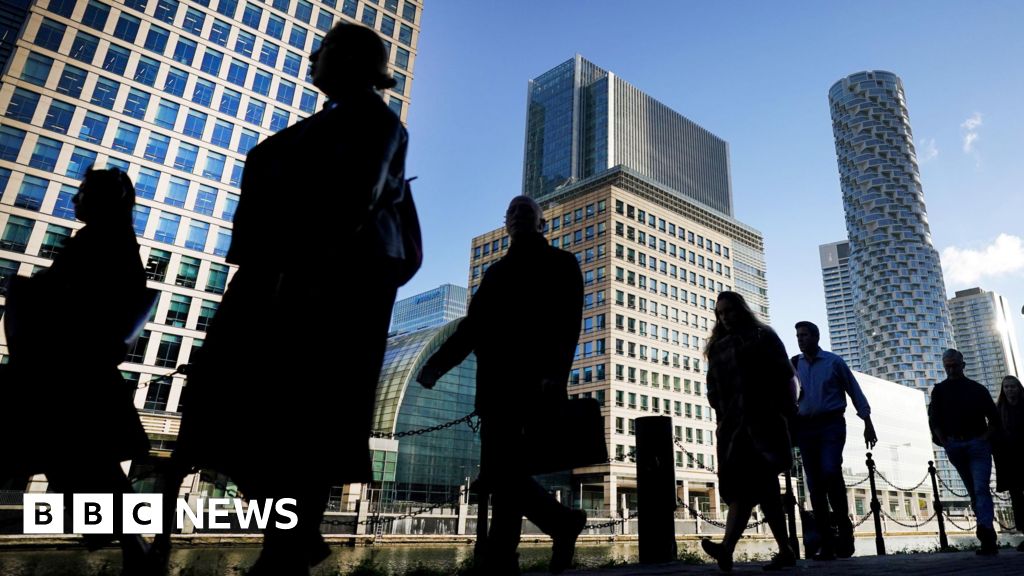ARTICLE AD BOX
image source, Getty Images
The government has said it has to "prepare for the worst" as the UK's energy firms continue to come under pressure from soaring gas prices.
Small business minister Paul Scully told the BBC his department was working closely with regulator Ofgem to protect customers if more firms went bust.
Nearly 1.5 million customers have been hit in just two weeks by energy firms collapsing under soaring gas prices.
Among them are Avro Energy and Green, which ceased trading on Wednesday.
Their 830,000 combined customers face being switched to a new, potentially more expensive, provider.
All affected customers will still receive energy while a new supplier is appointed by Ofgem.
Smaller providers launched in recent years have been overwhelmed by a global spike in wholesale gas prices, as economies have reopened from lockdowns and high demand from Asia has pushed down supplies to Europe.
Mr Scully said he would not speculate about what might happen to gas prices next, as that would cause "instability and a run on confidence".
He said "cyclical issues" were to blame for the rising cost of gas.
But when asked what the government would do if prices did not come down again, he said: "We have to prepare for the worst... We need to plan for that situation."
He added: "We will work with each company and look at their particular circumstances to make sure we can get through this difficult time."
He said there was "a mature system" in place to deal with the collapse of energy firms, "protecting customers both in continuity of supply and prices".
Tough it out
Despite Mr Scully's comments, the government has cooled on the idea of loans to the industry, says BBC business editor Simon Jack.
He says that while the government had been talking of state-backed loans for larger energy firms, that idea is now "very much on the back burner" and its intention is to "tough this one out".
The BBC has been told that ministers believe the current system for managing the failure of energy companies, which allows companies to recoup losses through an industry-wide levy, is working satisfactorily, even though it will add costs to millions of customers' bills.
Our business editor says ministers do accept that the existing system of reallocating customers would not work if one of the bigger challenger firms went bust.
In that case, the government has the power to appoint a special administrator, in what would be a quasi-temporary nationalisation.
'They must have known'
image source, PA Media
image captionSara Pilgrim was originally an Npower customer but has changed supplier twice since thenThe boss of failed firm Green, Peter McGirr, told the BBC he had done nothing wrong and said bigger firms would soon face problems.
Mr McGirr predicted: "You will see larger suppliers feeling the pain as well and they will come cap in hand for a bailout."
But his firm faced criticism from one angry customer, 52-year-old Sara Pilgrim of North Lincolnshire, who switched to Green just a week ago.
"My contract switched on the 16 September. I went from E.On. I was with Npower, who transferred to E.On," she told the BBC.
"I went around and looked at different companies. Green weren't the lowest, but I decided to go with them.
"How can they have been allowed to take on new contracts that close to them going bust? They must have known something was going on six days ago.
"I'm just angry really that they've been allowed to do that. You know if you have to cease trading. That's my gripe really, that they've been allowed to take on new contracts so close to them ceasing trading."
Ofgem's price cap, which covers 15 million households across England, Wales and Scotland, protects customers on some tariffs by limiting how much firms can charge per unit of gas.
But providers have complained that they are unable to pass on rising costs to customers because of the cap on energy bills.
The plight of Avro customers is a good illustration of what may befall hundreds of thousands of people in the coming weeks.
An Avro customer in a household using a typical amount of gas and electricity, who got a fixed rate deal in August, would have been paying £1,087 a year, according to price comparison site Uswitch. In March, they could have got a deal costing £920 a year.
Now Avro has collapsed, they are likely to be paying £1,277 a year at their new supplier from 1 October, in line with Ofgem's price cap.
The price cap does not mean it is impossible to pay more than £1,277 a year. It is a cap on the price, not the final bill.
That figure is an illustration of the cap's effect on a gas and electricity customer's annual bill, assuming they have an average level of energy consumption. So, a household with heavy energy use will have a higher annual bill.
Price comparison site Uswitch has acknowledged there is currently no point in energy customers shopping around.
Justina Miltienyte, the site's energy policy expert, said: "If you are coming to the end of your fixed deal, our advice is to hold tight, stay put and be rolled over on to your supplier's standard variable rate.
"Your supplier may try to offer you a new fixed deal, but this is unlikely to be the best option right now.
"However, people can leave their contact details so we could contact them once the situation improves. They can still head to Uswitch.com to compare deals across the whole of the energy market."
Since wholesale gas prices have started to spike, a number of firms have collapsed.
These smaller companies account for more than 5% of the UK energy market - about 1.5 million customers.
Other small companies could fold in the coming days and weeks.
Igloo, for example, has said it is working with restructuring consultants Alvarez & Marsal, although it told the BBC it had not appointed administrators.
Bulb, the UK's sixth largest energy company with 1.7 million customers, is also seeking additional financing.
image source, Getty Images
What happens if your energy supplier goes bust?
- Customers will still continue to receive gas or electricity even if the energy supplier goes bust. Ofgem will move your account to a new supplier, but it may take a few weeks. Your new supplier should then contact you to explain what is happening with your account
- While you wait to hear from your new supplier: check your current balance and - if possible - download any bills; take a photo of your meter reading
- If you pay by direct debit, there is no need to cancel it straight away, Citizens Advice says. Wait until your new account is set up before you cancel it
- If you are in credit, your money is protected and you'll be paid back. If you were in debt to the old supplier, you'll still have to pay the money back to your new supplier instead
Gas prices are rising all across Europe, but Britain has also been affected by lower winds than usual - denting renewable energy supplies - as well as a recent fire at a National Grid site in Kent.
In the UK, firms had already been hit by a jump in costs even before the recent spike. From more than 70 suppliers in 2018, there are just over 30 now.
Industry sources fear there may be as few as 10 suppliers left by the end of the year.
Has your energy firm collapsed? How will this affect you? Email haveyoursay@bbc.co.uk.
Please include a contact number if you are willing to speak to a BBC journalist. You can also contact us in the following ways:
Or use this form to get in touch:
If you are reading this page and can't see the form you will need to visit the mobile version of the BBC website to submit your comment or send it via email to HaveYourSay@bbc.co.uk. Please include your name, age and location with any comment you send in.

 3 years ago
50
3 years ago
50








 English (US) ·
English (US) ·